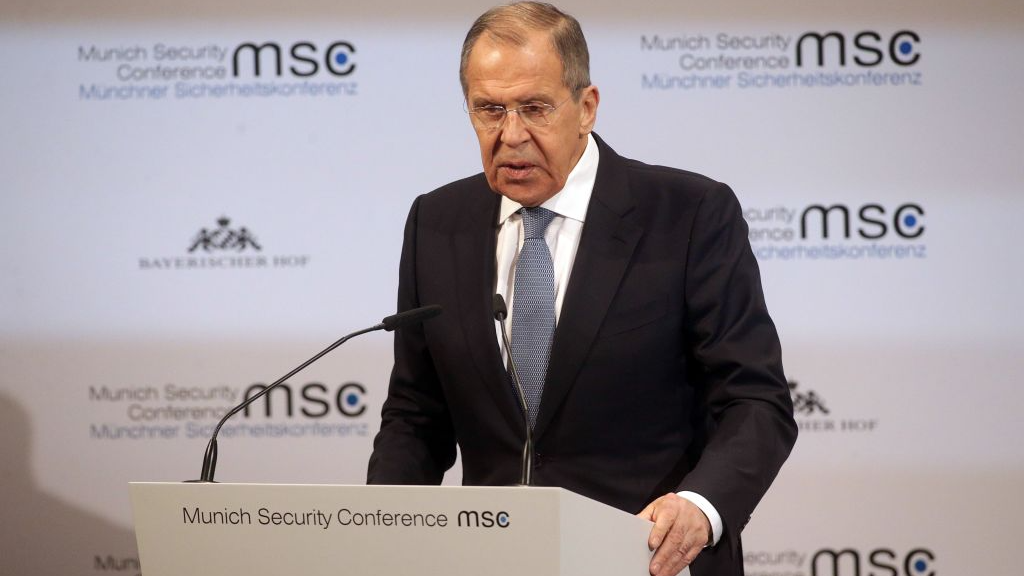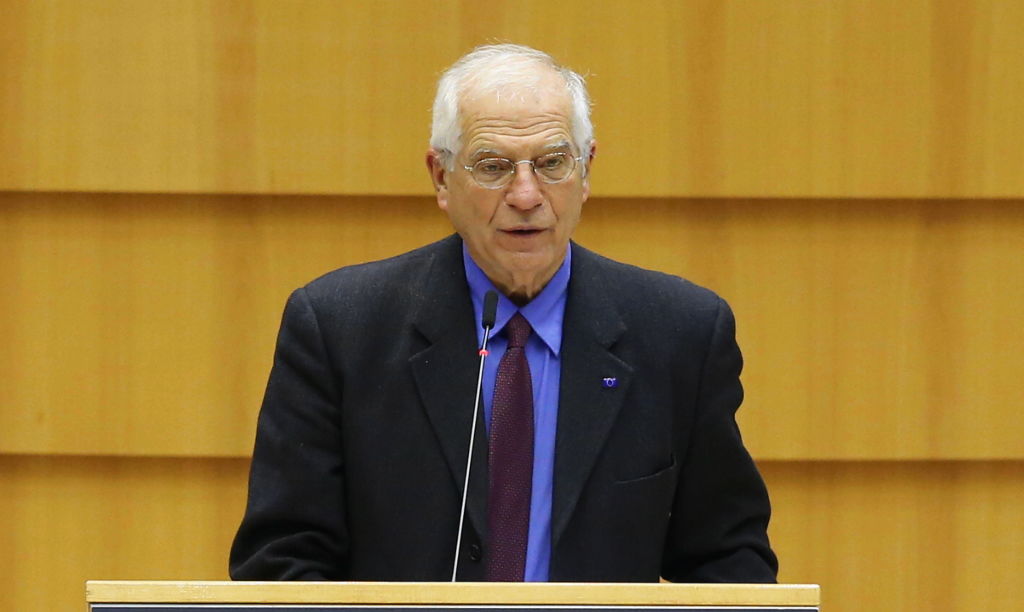
Russian Foreign Minister Sergey Lavrov delivers a speech at the 2020 Munich Security Conference (MSC) in Munich, Germany, February 15, 2020. /Getty
Russian Foreign Minister Sergey Lavrov delivers a speech at the 2020 Munich Security Conference (MSC) in Munich, Germany, February 15, 2020. /Getty
Editor's note: Thomas O. Falk is a London-based political analyst and commentator. He holds a Master of Arts in International Relations from the University of Birmingham and specializes in U.S. affairs. The article reflects the author's opinions and not necessarily the views of CGTN.
Anyone who observed the meeting between the EU's Foreign Policy Chief Joseph Borrell and Russia's Foreign Minister Sergey Lavrov on February 5 witnessed how it did not cease the deterioration of Brussels and Moscow's bilateral relations. Instead, it further exacerbated the existing fracture.
During their press conference, Borrell looked partly inept, partly unequal to Lavrov and the latter's ability to own the moment.
The European Union was "unreliable." EU countries such as Germany and France behaved "arrogantly" toward Russia and refused to provide pivotal information to clarify the Navalny case. It is only part of the cascade of allegations that Lavrov brought down on Borrell.
Borrell's response? Silence and a European countenance that appeared utterly misplaced.
If Borrell's performance, or lack thereof, was insufficient to display how his visit had already derailed at this stage, it became even more evident when the Russian Foreign expelled three diplomats from EU countries for allegedly participating in the protests against the imprisonment and conviction of Kremlin critic Alexei Navalny – while Borrell and Lavrov were holding their press conference.
Even before Borrell's visit to Moscow, its purpose was questionable. After all, the Kremlin possessed the leverage, while Borrell himself had none but ran the risk of being played - which is precisely what occurred on Friday.
It will not remain without consequences considering that the EU seeks to fundamentally reconsider its strategy toward Russia in a few weeks' time. Since a cordial relationship between both sides is proving to be difficult, the EU will have to limit itself, for reasons of self-respect, to what is desired and sought by Brussels as well as Moscow in the meantime: energy, trade, the pandemic, Syria, to only name a few. The latter also constitutes a relationship with Russia but far below what was theoretically possible if both sides could arrange themselves amicably.

High Representative of EU for Foreign Affairs and Security Policy Joseph Borrell makes a speech during the European Parliament's plenary session in Brussels, Belgium, December 15, 2020. /Getty
High Representative of EU for Foreign Affairs and Security Policy Joseph Borrell makes a speech during the European Parliament's plenary session in Brussels, Belgium, December 15, 2020. /Getty
But we are far away from such a scenario. The previous week, some governments in the EU initially spoke out against the imposition of new sanctions due to the judgment against Navalny.
However, Borrell returned from Moscow not only empty-handed but also utterly exposed. Further sanctions are therefore inevitable if the EU seeks to adhere to its own modus operandi and live up to its self-imposed moral standards.
The EU's People's Party Leader in the European Parliament, Manfred Weber, has already called for a swift reaction. "The sanctions against Russia that are on the table must be activated. Cash flows from Russian supporters of the Moscow power system in the EU should be cut and their accounts frozen."
Angela Merkel has also already emphasized that Germany was ready to continue the series of sanctions. Moreover, Berlin, Sweden, and Poland already announced that countermeasures were being evaluated.
And then there is the Joe Biden element. The president has emphasized his hard-line stance on Russia in his foreign policy address the week before. Given his commitment to revitalizing US-EU relations, Washington and Brussels could seek to develop an array of sanction options against Russia that could be imposed rapidly depending on the Kremlin's subsequent actions.
It is a continuation of a circle one has witnessed all too many times over these past two decades: Brussels imposes additional sanctions on Russia, while the Kremlin, not inclined to succumb to European pressure, goes on the offensive and openly displays that sanctions – regardless of their impact and number – will never coerce the Kremlin into altering its politics.
The lowest possible level between the two has thus not yet been reached by any means.
(If you want to contribute and have specific expertise, please contact us at opinions@cgtn.com.)

